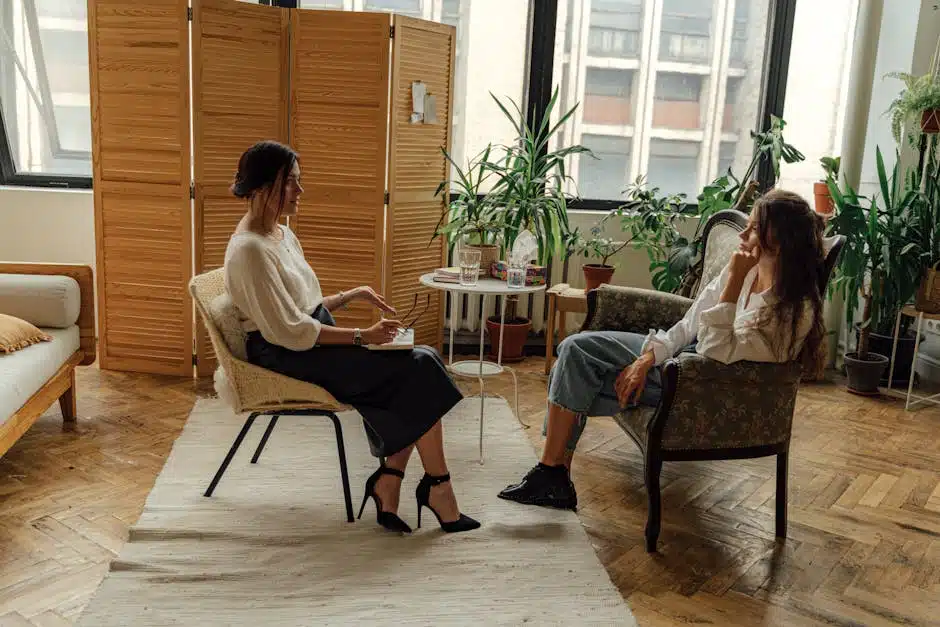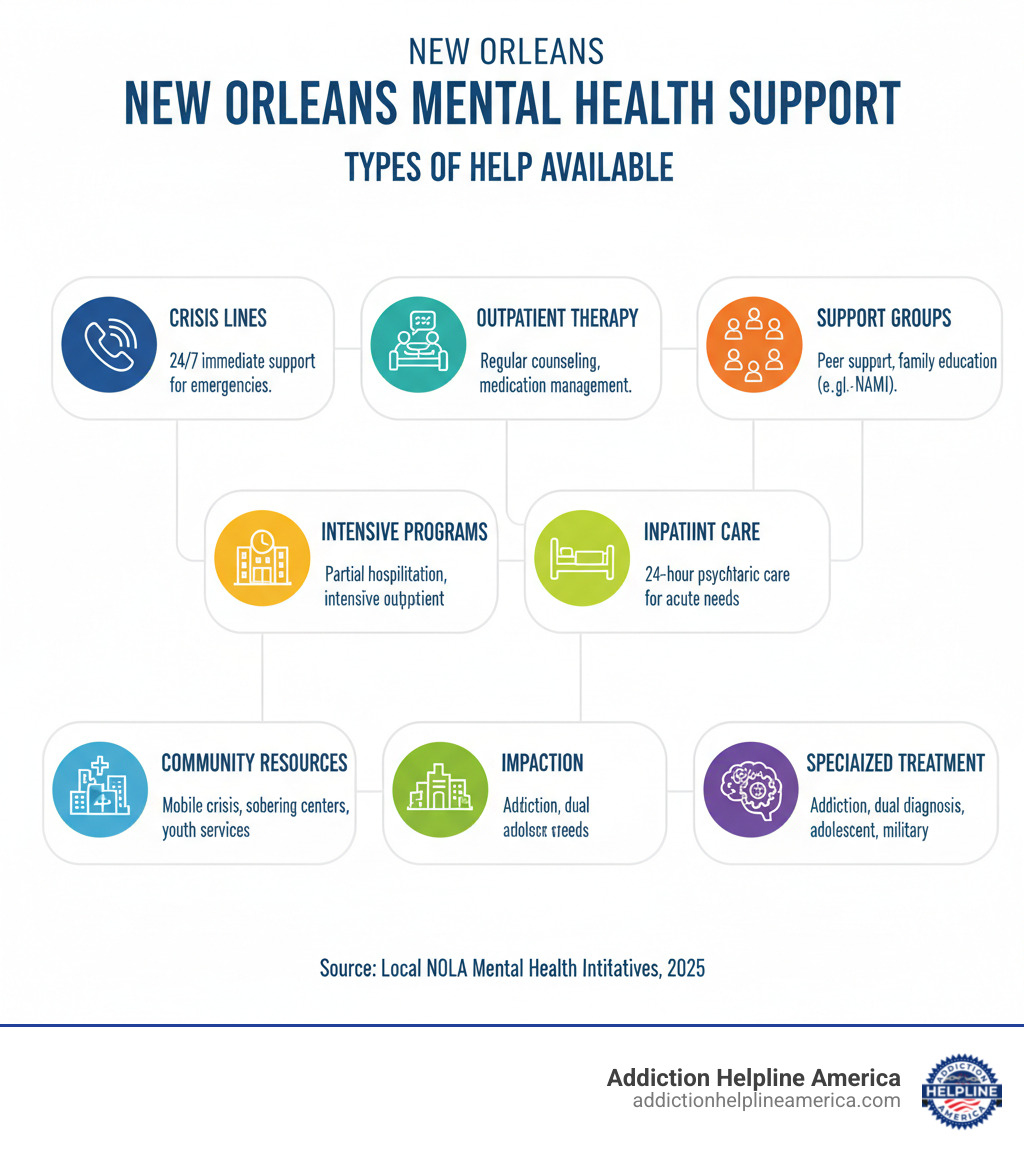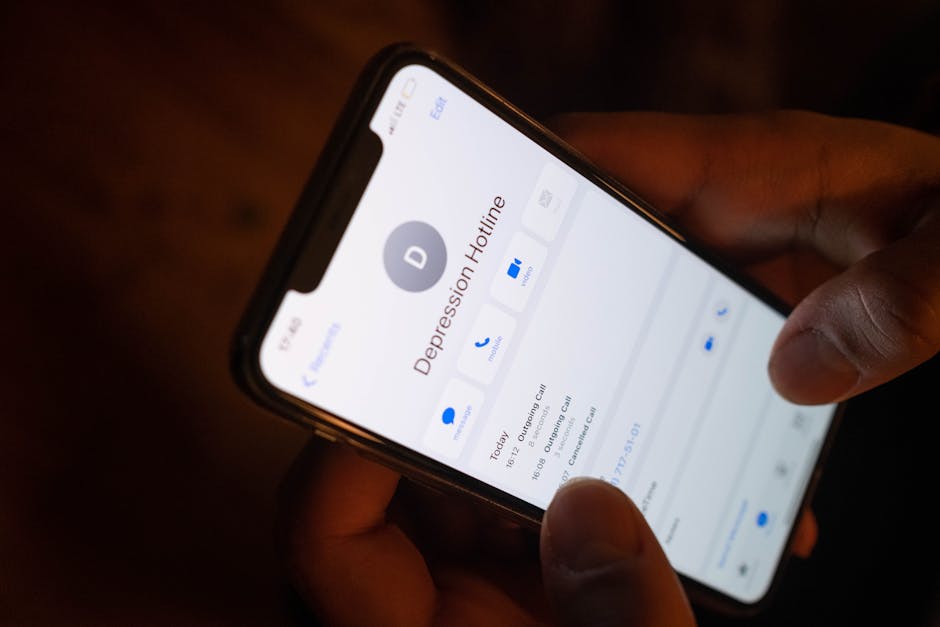
Understanding the Need for Mental Health Support in NOLA
New Orleans mental health services are critical for a community facing significant behavioral health challenges. Here’s what you need to know:
Quick Facts:
- 1 in 5 people live with a mental health condition
- 1 in 5 kids are affected by mental health disorders
- Suicide is the second leading cause of death for children ages 10-14 in the New Orleans area
- 23,000 adults in New Orleans had a major depressive episode in the past year
- Behavioral health deserts exist in New Orleans East, Lower 9, and Holy Cross neighborhoods
Where to Get Help:
- Crisis Support: Call 988 (National Suicide Prevention Lifeline) or 844-568-6473 (24-Hour Crisis Line)
- Non-Emergency: Dial 211 (VIA LINK) for referrals and information
- Treatment: Contact local providers for therapy, medication management, and specialized care
The journey to mental wellness affects every neighborhood in New Orleans. Our community faces complex behavioral health needs, from anxiety and depression to substance use challenges. The problem is systemic: the highest concentrations of Medicaid beneficiaries are farthest from dedicated behavioral health professionals, creating significant barriers to care.
However, New Orleans has built a strong network of mental health resources through collaborative efforts and dedicated providers. At Addiction Helpline America, we connect individuals and families with these resources, offering compassionate, confidential guidance 24/7. We know that with the right support, recovery is possible.
Simple guide to New Orleans mental health terms:
A Guide to Accessible New Orleans Mental Health Resources
When you’re struggling with mental health challenges or addiction, finding the right help shouldn’t feel like another obstacle. The good news is you’re not alone, and there are people ready to support you right now.
Let’s walk through the resources available to you and your loved ones, starting with how we can help.
Addiction Helpline America: Your Partner in Recovery
At Addiction Helpline America, we provide a clear, free, and confidential path to recovery. Our 24/7 helpline connects you to addiction and mental health treatment that fits your unique situation. You call, share what you’re going through, and we find the right provider from our trusted nationwide network. We prioritize person-centered support, because there’s no one-size-fits-all approach to healing.
We connect people in Orleans, Plaquemines, and St. Bernard Parishes with providers, focusing on those who are uninsured or Medicaid-eligible, but we help everyone regardless of insurance or location.
We can connect you with help for a wide range of conditions, including:
- Mental illnesses like depression, anxiety, bipolar disorder, and PTSD.
- Addictive disorders from alcohol and opioids to gambling.
- Dual diagnosis programs that treat co-occurring mental health and substance use issues.
- Trauma-based disorders, with some facilities offering dedicated trauma-informed care.
- Adolescent programs for teens and specialized military programs for veterans.
We can also find programs with immediate, no-wait services for high-need groups like pregnant women with substance use issues. Whatever you’re facing, we’re here to help you take the first step.
Find personalized alcohol and drug addiction treatment in New Orleans, Louisiana.
Community Support, Education, and Advocacy
Beyond formal treatment, community support is a vital piece of the New Orleans mental health puzzle. Peer support from those with shared experiences can be transformative.
- Local support networks offer education, advocacy, and peer support for individuals and families, creating spaces to share experiences and find hope.
- Free support groups for various needs, including for family members and suicide loss survivors, meet regularly across the city.
- Education programs like Mental Health First Aid teach practical, evidence-based skills to recognize and respond to mental health challenges.
- Advocacy efforts push for systemic changes, like better funding and expanded services in underserved neighborhoods.
- Community walks and events raise awareness, reduce stigma, and build solidarity.
These community efforts meet you where you are. If you’re unsure where to start, Addiction Helpline America can help guide you to the right resource, whether it’s therapy, peer support, or crisis intervention.
Collaborative Efforts and Specialized Programs
In New Orleans, you’re not alone in facing mental health challenges. The city has brought together organizations, healthcare providers, and community leaders who understand that New Orleans mental health needs require teamwork.
Community Mental Health Initiatives
The New Orleans Mental Health Collaborative (MHC) is a key initiative working to ensure every New Orleanian has equitable access to high-quality mental health care. Using a collective impact model, it unites providers, city agencies, and community organizations to work on shared goals. The MHC focuses on Access to Care, Capacity Building for providers, and Needs Assessment to identify service gaps.
The Collaborative prioritizes “behavioral health deserts” like New Orleans East, the Lower 9th Ward, and Holy Cross. Beyond coordinating services, the MHC advocates for systemic change, such as better Medicaid reimbursement and more school-based mental health services, to ensure resources reach those who need them most. Learn more about the MHC’s work with United Way of Southeast Louisiana.Discover how collaboration is tackling New Orleans’ mental health crisis.
The City of New Orleans has also launched several innovative programs in partnership with local non-profits:
- The Sobering Center, operated with Odyssey House Louisiana, offers a safe alternative to ERs or jail for intoxicated individuals, connecting them to recovery services.
- Assisted Outpatient Treatment (AOT) provides court-ordered care for individuals with serious mental illness who struggle with voluntary treatment.
- The Law Enforcement Assisted Diversion (LEAD) program diverts people with low-level offenses related to substance use or mental illness to support services instead of the justice system.
- To combat the opioid crisis, the city makes naloxone (an overdose-reversal drug) available at New Orleans Fire Department stations and through EMS outreach.
Improving Youth Services and Trauma-Informed Care
With suicide being the second leading cause of death for children ages 10-14 in the area, youth services are critical. The SAMHSA RESOLVE project expands and coordinates trauma-informed behavioral health resources for youth, acknowledging the impact of collective trauma and community violence.
Trauma-informed care shifts the focus from “What’s wrong with you?” to “What happened to you?” creating a more supportive environment. The RESOLVE project builds a network of schools, community organizations, and healthcare providers to make these services accessible.
At Addiction Helpline America, we can connect you and your family with providers who are part of these initiatives and understand the unique challenges facing New Orleans youth. Whether for yourself or a young person you love, we’re here to guide you.
How to Access Care: From Crisis to Treatment
Knowing where to turn when you need help is the first step toward recovery. Whether you’re facing an immediate crisis or seeking ongoing support, New Orleans mental health resources are available to meet you where you are. Let’s walk through your options together.
What to Do in a Mental Health Crisis
When a mental health crisis strikes, every moment matters. You don’t have to face it alone—immediate support is just a phone call away.
If you or someone you care about is in crisis, here are the numbers that can help right now:
- National Suicide Prevention Lifeline: Dial or text 988 for free, confidential support 24/7
- Metropolitan Human Services District (MHSD) 24-Hour Crisis Line: Call 844-568-6473 or (504) 826-2675
- VIA LINK: Dial 211 for information, referrals, and crisis intervention vialink.org
- COPE Crisis Line: Call 504-269-COPE for free, confidential crisis counseling
- TrevorText: LGBTQ youth can text START to 678678 or call 1.866.488.7386
- New Orleans Family Justice Center (NOFJC) Crisis Hotline: Call 504-866-9554 for domestic violence or sexual assault support
- Addiction Helpline America: Our 24-hour helpline provides immediate guidance and connects you to the right resources
These crisis lines connect you with trained counselors who understand what you’re going through. They’re there to listen, provide immediate support, and help you take the next steps toward safety and healing. There’s no judgment—just compassionate people ready to help.
Finding a Provider for New Orleans Mental Health Services
Once the immediate crisis has passed, finding ongoing care becomes the priority. We know this step can feel overwhelming, especially when you’re already struggling. That’s why the City of New Orleans and VIA LINK created something to make it easier.
The Mental Health and Substance Use Outpatient Wait Time Dashboard shows you which providers have availability and how long you might wait for an appointment. No more calling dozens of offices only to hear “we’re not taking new patients.” This tool brings transparency to the process, helping you find care when you need it most. Explore the Mental Health and Substance Use Outpatient Wait Time Dashboard.
Of course, seeing a list of options is one thing—knowing which one is right for you is another. That’s where we come in. At Addiction Helpline America, we take the time to understand your specific situation. What kind of support do you need? What insurance do you have? Are you looking for someone who specializes in trauma, addiction, or both? We consider all these factors to connect you with providers who truly fit your needs.
Whether you’re seeking outpatient therapy, medication management, or something more intensive, we’re here to guide you through the options without pressure or judgment. Finding the right fit matters, and we’re committed to helping you get there.
Understanding Private and Specialized Care Options
Beyond community-based services, private and specialized treatment centers offer comprehensive programs for complex behavioral health needs. These facilities provide focused care for specific conditions and often have shorter wait times than public options.
Addiction Helpline America helps you steer these specialized care options to find the best match for your situation. We work with a network of trusted providers who offer treatment for psychiatric disorders, dual diagnosis (when mental health and substance use conditions occur together), substance abuse, and trauma-based disorders.
Many of the facilities in our network provide specialized programs custom to specific populations. You’ll find adolescent psychiatric programs designed for young people ages 12-17, recognizing that teenagers face unique challenges. For those who have served our country, military rehabilitation programs address the particular mental health and substance abuse issues that service members encounter. Some centers also operate dedicated trauma institutes that focus specifically on healing from traumatic experiences.
These specialized programs often include multiple levels of care, from inpatient treatment for acute needs to outpatient day treatment that allows you to continue living at home while receiving intensive support. Many facilities offer free, confidential assessments available 24 hours a day to determine which level of care is most appropriate for your situation.
The beauty of having options is finding the program that speaks to your specific experience. Whether you’re dealing with an eating disorder, PTSD, addiction, or multiple conditions at once, there’s a path forward. We’re here to help you find it.
Find personalized alcohol and drug addiction treatment in New Orleans, Louisiana.
Comparing Key Service Providers
Understanding who does what can make all the difference when you’re looking for New Orleans mental health support. Our community has a strong network of organizations, each bringing something unique to the table.
Key Differences in New Orleans Mental Health Organizations
At Addiction Helpline America, we connect you with the right resources for your specific situation. We provide free, confidential guidance to help you steer the system and find treatment for mental health challenges, addiction, or both.
Metropolitan Human Services District (MHSD) is a direct care provider for Orleans, Plaquemines, and St. Bernard Parishes, focusing on uninsured or Medicaid-eligible individuals. They offer a range of services and a 24-hour crisis line at (504) 826-2675.
NAMI Southeast Louisiana focuses on education, support, and advocacy. They offer free support groups, Mental Health First Aid training, and community events to raise awareness.
The City of New Orleans works on strategic initiatives and partnerships, such as the Sobering Center, the LEAD program, and the Mental Health Wait Time Dashboard to improve access to care.
River Oaks Hospital offers comprehensive inpatient and outpatient clinical treatment for psychiatric disorders, addiction, and trauma, including specialized programs for adolescents and military personnel.
Here’s a quick comparison:
| Provider | Primary Focus | Key Services | Target Population | Cost/Payment |
|---|---|---|---|---|
| Addiction Helpline America | Connecting individuals to resources for mental health and addiction treatment | Free, confidential, personalized guidance to find the right recovery program | Individuals seeking help for mental illness and addiction in Louisiana | Free (referral service) |
| Metropolitan Human Services District (MHSD) | Providing direct mental health, addiction, and intellectual/developmental disability services | Mental illness & addiction services, I/DD services; 24-hour crisis line; no-wait for specific addiction groups | Uninsured or Medicaid-eligible individuals in Orleans, Plaquemines, St. Bernard Parishes | Varies (Medicaid, uninsured) |
| NAMI Southeast Louisiana | Education, support, and advocacy for individuals and families affected by mental illness | Free support groups, Mental Health First Aid training, advocacy, community awareness events (NAMIWalks) | Individuals and families affected by mental illness in Southeast Louisiana | Free (support, education, advocacy) |
| City of New Orleans (Initiatives) | Policy, funding, strategic planning, and partnerships to address behavioral health needs | Sobering Center, AOT, LEAD program, Naloxone Distribution, Wait Time Dashboard, Mobile Crisis Intervention Unit | General public, individuals with substance use issues, those involved with justice system, youth | Varies (publicly funded, partnerships) |
| River Oaks Hospital | Comprehensive clinical treatment for psychiatric, addiction, trauma, and eating disorders | Inpatient & outpatient programs for adults & adolescents, dual diagnosis, military rehabilitation, trauma-based care; 24/7 assessments | Adults, adolescents, military personnel, individuals with psychiatric, addiction, trauma, or eating disorders | Private insurance, self-pay |
The beauty of this system is that these organizations often work together. We might connect you with MHSD for direct services, suggest a NAMI support group, or help you access specialized care at River Oaks Hospital. It’s all about finding the right fit for your unique situation.
Frequently Asked Questions
You probably have questions about New Orleans mental health services—and that’s completely normal. Let’s walk through some of the most common ones together.
What is Mental Health First Aid and where can I get trained?
Think of Mental Health First Aid as CPR for mental health. It’s an evidence-based course that teaches you to recognize the signs of mental health and substance use challenges and respond safely. You’ll learn an action plan to support someone until professional help arrives.
NAMI Southeast Louisiana and the New Orleans Mental Health Collaborative regularly promote these training sessions, many of which are offered at no cost through local partners like LPHI.
Who is eligible for services from Addiction Helpline America?
Addiction Helpline America is available to anyone in the country who needs help finding mental health or addiction treatment. Our referral service is free and confidential, with no restrictions on location or insurance status.
The providers we connect you with have different eligibility requirements. For example, MHSD primarily serves uninsured or Medicaid-eligible residents of Orleans, Plaquemines, and St. Bernard Parishes. We work with many other facilities that accept private insurance or offer sliding scale fees. We connect adolescents, adults, and older individuals to age-appropriate care. Just call us, and we’ll help find the right fit.
What is a Sobering Center?
A Sobering Center offers a safe, supervised alternative to jail or the ER for people who are publicly intoxicated. The City of New Orleans partners with Odyssey House Louisiana to operate a 25-bed center where individuals can sober up and, most importantly, get connected to recovery services and long-term treatment.
If you or a loved one has been to a sobering center, Addiction Helpline America can help you take the next step. We connect people to comprehensive addiction treatment programs that address the root causes of substance use. Recovery is just getting started, and we’re here to guide you.
Conclusion: Taking the Next Step on Your Wellness Journey
New Orleans mental health support isn’t built by one organization or initiative alone. It’s woven together by countless threads—the direct care providers at MHSD, the peer support and advocacy of NAMI Southeast Louisiana, the specialized clinical programs at facilities throughout the area, and the strategic vision of the New Orleans Mental Health Collaborative. Each plays a vital role in creating a safety net for our community.
The work continues to expand, especially in neighborhoods that need it most. The SAMHSA RESOLVE project is bringing trauma-informed care to young people who’ve experienced too much too soon. The city’s innovative programs like the Sobering Center and LEAD are creating new pathways to recovery instead of incarceration. The Mental Health Wait Time Dashboard is making it easier to find care when you need it.
These collaborative efforts paint a hopeful picture. Change is happening. Resources are growing. The conversation around mental health is becoming more open and compassionate.
But all of these resources, all of this progress, only matters when someone takes that first brave step toward getting help. That someone could be you, or it could be a loved one you’re worried about. Either way, you don’t have to figure it out alone.
We know how overwhelming it can feel to steer the mental health system, especially when you’re already struggling. That’s exactly why Addiction Helpline America exists. We offer free, confidential guidance to help you find the right treatment program—whether you need help with mental illness, addiction, or both. We’ll listen to your unique situation, answer your questions, and connect you with providers in our network who can genuinely help.
Recovery is possible. Healing happens. And it starts with reaching out.
Find personalized alcohol and drug addiction treatment in New Orleans, Louisiana.
Our helpline is 100%
free & confidential
If you or someone you care about is struggling with drug or alcohol addiction, we can help you explore your recovery options. Don’t face this challenge alone—seek support from us.
24/7 New Orleans Mental Health Crisis & Addiction Support Helpline
Resources
Will my insurance
cover addiction
treatment?
We're ready to help
Find the best
drug or alcohol treatment
center
Are you or a loved one struggling with addiction? Call today to speak to a treatment expert.















